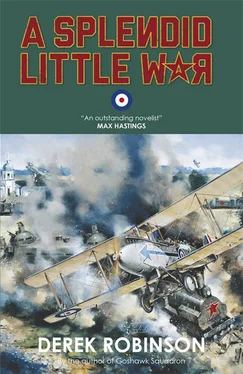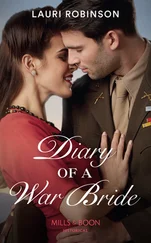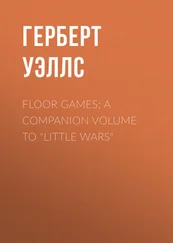When he was a boy, Borodin had often lived on the fringe of the Imperial family: such was the accident of his birth and the fact that Nicholas was in love with Russian music — Rimsky-Korsakov; Balakirev; the boy’s father, Aleksandr Borodin; Tchaikovsky: a golden age. The Tsar’s idea of heaven was watching Sleeping Beauty from his box at the Imperial Conservatory.
Borodin knew him as a mild young man who liked playing with dogs and gathering mushrooms. When he was twenty-five he still enjoyed a game of hide-and-seek. He had no curiosity about the outside world and absolutely no ambition to be Tsar. “What am I going to do?” he asked when his father died, and he never found a happy answer. He adored his wife more than his people, let her dominate him, scold him and urge him to be a second Peter the Great. Perhaps he put himself in charge of winning the war in order to please her. In so doing, he condemned them both, and their children, to death; but not before he had killed another million or more Russian troops.
So: no room for Intelligence in Borodin’s time on the Staff. Now he wondered just what he would do in this little town renamed Warsaw, how he would discover whether or not it was in Nestor Makhno’s hands and how he could escape without getting shot. Even in these rags, he didn’t look like a peasant. Too tall, too erect. He rubbed dirt on his face and neck, and walked like a ploughman, feet well apart, knees bent, a bit of a stoop, elbows out. Night fell. Walking like that, in the dark, grew more difficult. He often stumbled, partly because he was tired. And every step he took was a step he would have to take again when he came back. Perhaps this adventure was not such a good idea.
The moon came up, which helped, and at last he saw a light, which was very welcome. It was a farmhouse, and the light was a fire. A woman, not young, was bagging potatoes by the light of a fire, and she was not glad to see him. He stopped a good distance away, told her he was alone, and asked how far it was to town.
“Walking?” She had a knife, and made sure he saw it. “An hour. Maybe less.”
An hour was three miles. Maybe only two. At once he felt better. “You grow potatoes? Sell me a sack of potatoes.” A peasant bringing potatoes into town: nobody would look twice at him. Then he remembered: it was two miles. Maybe three. “Make it half a sack,” he said.
They argued over the price and he paid more than they were worth. “You’ll get double that in town,” she said. “If you’re lucky.” And laughed. Or cackled.
About an hour later, maybe more, maybe less, Borodin slouched along the railway tracks into Warsaw. His shoulders ached. Half a sack of potatoes weighed more than he had believed possible.
Ahead, the lights of the station glowed. No sounds. No trains, no people. An efficient spy would infiltrate and find out why the town was dead. How? Wake up someone and ask him? That was absurd. His legs were stiff. He saw a shadow that was blacker than the night. A brick wall. He sat and rested against it, holding the sack between his knees, and told himself to think harder while he rested his eyes.
What woke him was the moving of the sack. He grabbed it before it could escape and it was made of skin. He had a man by the throat. The thief squirmed and spluttered and tried to claw at his fingers, but Borodin tightened his grip. The struggle stopped. He stood up and took the man up with him. Took him easily. In the faint light of the moon he saw that the man was a boy. He let go of the throat and held him by the arm. The boy coughed until he was wheezing for breath, and got his breath back and coughed some more.
“Feel better?” Borodin asked. “I apologize for my behaviour, but you did rather ask for it.”
The boy took a huge breath and slowly released it. He wiped his eyes with his spare hand. “Feel like shit,” he croaked. The voice was young. Thirteen, maybe fourteen. “Christ… look at you. Never saw nobody as tall as you before. Let me sit down. Ain’t goin’ nowhere.”
They both sat. “You wanted my potatoes,” Borodin said. The words sounded dishonest. A genuine peasant wouldn’t say that. The boy grunted. “You only had to ask,” Borodin said, and fished a big potato from the bag. “Here.” The boy took it, smelled it, and began eating it. “It’s raw,” Borodin said. “Got another?” the boy asked. Borodin gave him another potato. He ate with his mouth open. For a while the only sound in the night was the work of teeth and saliva on potato.
Eventually he belched, a long gut-rumbling statement. “God help your digestive system,” Borodin said. “What’s wrong with this town? Don’t they feed you?”
“Got another?” He accepted another potato and put it inside his shirt. “I saw you sneakin’ along the tracks. You don’t belong here. You talk like nobody from here. If I told Makhno’s men they’d shoot you.”
“Yes. But you wouldn’t get any more potatoes.” The boy thought about that. “You help me,” Borodin said, “and I’ll take you to a place where you’ll get three hot meals a day.” More silence. “Fried eggs for breakfast,” Borodin said. “Beef stew at midday. Lamb chops for supper. Hot bread with everything.”
The boy was in tears, crying for food. He told Borodin what he wanted to know. Nestor Makhno’s men had taken the town, killed half the people, looted everywhere. Vodka, vodka, vodka. They were waiting for a train to rob, and getting angry because no trains arrived, so they went on killing and looting and drinking. They were all drunk now. That’s why the town was quiet. They’d drunk themselves stupid. Tomorrow they’d wake up and feel even worse and kill some more.
Borodin asked why they hadn’t killed the boy. He said it was because his father was stationmaster and they needed him to stop the train they wanted to rob. He pointed to the station lights. His father was there, guarded by a Makhno man who was drunk out of his skull, like all the rest.
Borodin had an impossible idea. “Go and fetch your father,” he said. “Tell him I am an officer in General Denikin’s Volunteer Army. If he comes with me he will be safe and get three hot meals a day, like you.” The boy thought about it. “And the rest of these potatoes too,” Borodin said.
“Where’s your army?”
“Fifteen miles away.” More like twenty.
“Lamb chops. What they taste like?”
“Twice as good as chicken.” The boy’s gut rumbled some more. “Fetch your father. Go now. We can’t wait.”
The boy went, as silent as a shadow. He didn’t weigh much. It was easy to move like that when you were just skin and bone.
In less than five minutes he was back with his father. The man was thin and not much taller than his son, but Borodin was dismayed to see that he was lame, dragging his left leg. Even walking from the station was an effort. “We must hurry,” the man said. “It’s dangerous here.”
“Fifteen miles. I can’t carry you.”
“Pump trolley.” He pointed into the darkness. “Please. Hurry.”
The trolley was a small, lightweight truck with a seesaw pump action to make it go. The boy jumped up and worked the pump, and the trolley screamed as if stabbed. “Get grease, get oil, butter, anything,” Borodin said. The boy jumped down and ran. “He knows what to get,” his father said. Twenty minutes later they pumped the trolley more or less silently out of town. Borodin felt exhilarated.
“Lamb chops,” the stationmaster said. “I have never eaten them. Twice as good as chicken, the boy says.”
“Your son is very smart,” Borodin said. “And the harder we pump, the sooner you can have breakfast.”
6
The first bomb fell in the town square of Warsaw and killed an ox.
Читать дальше











